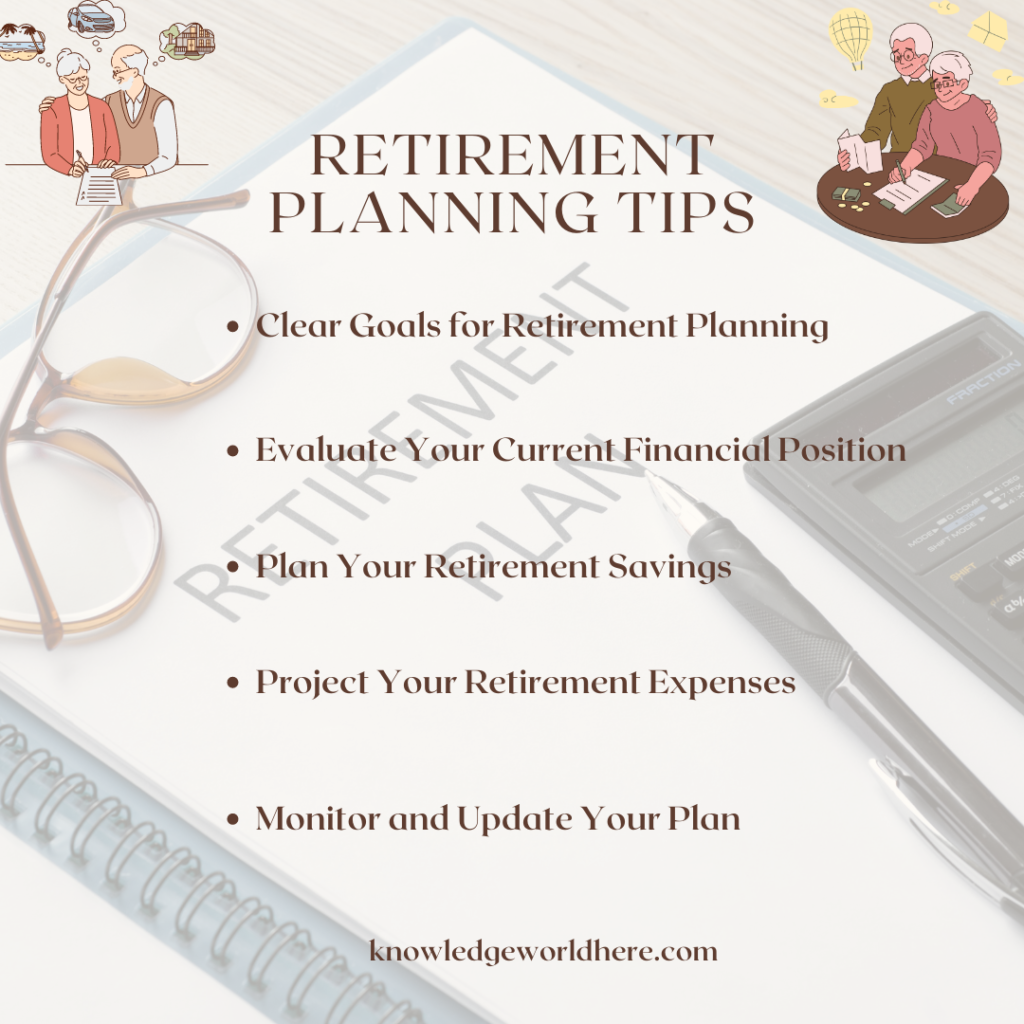It’s a retirement most always evaluated as eternal and glorious, the time for one to take a break and enjoy the fruits of their hard work after working for years. One needs to plan accordingly to get all benefits from the period. Whether you’re entering the working world for the first time or looking forward to a retirement date in just a few years, getting a handle on the means of protecting measures for your financial future is fundamental. In this section, we offer you retirement planning guidelines, tools for retirement savings, and why long-term financial planning is so essential so that you can retire fast and enjoy the fruits of your labor in Retirement.
Retirement Planning- Overview
Simply put, retirement planning is the process of determining a set of retirement goals and the development of plans to meet them. This process will include your estimate for your future expenditures, your income sources for expected revenue, and the plan that you may need to bridge the gap between the expenses and the income.
Hence, retirement planning becomes an essential requirement. In addition to having more years to get accustomed, and with an ever-increasingly costly cost of medical care also, preparation of a well-thought financial plan of action should be well in place by the time of Retirement; otherwise, there could be severe financial implications with the added stigma of having to delay retirement or lowering the standard of living at the most critical period of one’s life.
Why Plan Retirement Early?
Compound interest is the most important advantage of early retirement planning. The sooner you start to save, the more time your money gets to grow. The example given would be saving a few dollars every month while you are still in your 20s; those particular savings could exactly be the same amount 60 years down the road due to compound interest, and you would have the saving joy prepared for the future and in the present.
An early starter also tends to be more aggressive in terms of an investment program that could bring you more substantial profits over the long haul. Compared with waiting until 40 or 50 years old, such scenarios might leave you with fewer options and make you compromise on a more conservative plan and then garner lower returns.

Retirement Planning Tips
1. Clear Goals
Start planning your retirement by setting some clear, achievable goals. For example, you may want to consider the following.
- What age would I like to retire?
- What kind of life would I like to lead when retired?
- How much money will I need every year in order to sustain that lifestyle?
Defining Specific Retirement Objectives
Specific retirement objectives will guide you on how much you must save and invest for your desired retirement lifestyle.
2. Evaluate Your Current Financial Position
Take stock of where you stand. You will have to look at income, expenses, assets, and liabilities so that you can keep a reliable track for a duration of time. The more precise you can be about where you stand, the better you can understand precisely how much you can realistically set aside for Retirement.
3. Plan Your Retirement Savings
A good retirement savings plan forms the heart of your retirement financial planning. Consider this, for example, for creating a retirement savings plan that is:
- Employer-Sponsored Retirement Plans: Contribute enough to your employer-sponsored 401(k) plan so you may get any employer match. Free money can boost your retirement savings significantly.
- Individual Retirement Accounts: Consider opening a Traditional or Roth IRA. These accounts come with tax benefits that can multiply your savings.
4. Project Your Retirement Expenses
The most crucial aspect of your retirement planning is to project your retirement expenses. It is difficult to hazard a guess about how much you will spend tomorrow, but here are some categories to think about:
Housing Costs: Will you own your home, or will you continue to pay a mortgage?
- Healthcare Costs: Their costs will just increase with your age. This will include the costs of insurance premiums, out-of-pocket expenses, and long-term care.
- Lifestyle Costs: Include the lifestyle you’ll want to live and enjoy, as well as the great expense you’ll incur in terms of travel, hobbies, and entertainment.
5. Monitor and Update Your Plan
Retirement planning is a continuous process, not a one-time affair. It must be reviewed and updated often. Any of these events could happen in a person’s life, such as a change in job, marriage, birth, or illness, and thus can affect your finances and goals. You will keep a course with your retirement options by reviewing and updating the plan often.
Read More: https://knowledgeworldhere.com/finance/bhel-share-price-rises-3-after-ntpc-order
Importance of Financial Planning
Retirement planning involves long-term financial planning. This is an activity that concerns every spending but does not take into account the direct expenses. This procedure can assist in formulating a comprehensive future plan for an individual.
1. Wise Investment
Investment is a vital component in long-term financial planning. There is an opportunity to scout for a chance concerning the feasibility of using an economic advisor to propose an investment plan and strategy that should be aligned with your risk appetite and retirement objective. This could include:
- Investments in the Stock Market: With Stock Market investments, stocks generally have a vast scope of possibility for long-term appreciation but tend to be more volatile.
- Bonds: Being a relatively more risk-averse investment and an essential part of a conservative investor’s portfolio, bonds may also provide regular flows of income for the conservative investor.
- Investments in real estate can also produce rental income and probable appreciation over time.
2. Provide for Unforeseen Events
Life is unpredictable. Plans were thrown into ruin at an unsuspecting step. In such a scenario, you should have your emergency fund, which will cushion you in unforeseen expenses. Insurance options should also be considered to secure your assets. This will include health, life, and long-term care insurance.
3. Consider Tax Implications
Make yourself aware of the tax implications of your retirement accounts and investments. Knowing how your withdrawals will be taxed can help you to bring out a tax-efficient withdrawal strategy, maximize your retirement income, and go through all rules and regulations.
Conclusion
Last but not least, effective retirement planning is about protecting your financial well-being and ensuring you can live the lifestyle you want. Start early, set goals, track your finances regularly, and therefore grow your retirement fund to meet those goals. Such plans can be helpful for the next generation. Diversify investments under a retirement fund and create other sources of income besides social security or pensions and personal savings or income earners so you have stable, reassuring ground to lean on when crises and shocks arise in life. Keeping an eye on changes in financial marketplaces and governmental financial regulations will help you strategize around those factors. Having done your research, you should schedule an appointment with a financial advisor who can advise further based on your particular circumstances. However, the keys to successfully attaining your Dream Retirement are planning and discipline, so embrace the process of planning toward financial well-being and take steps now to ensure that your Retirement is as fulfilling and worry-free as possible.

